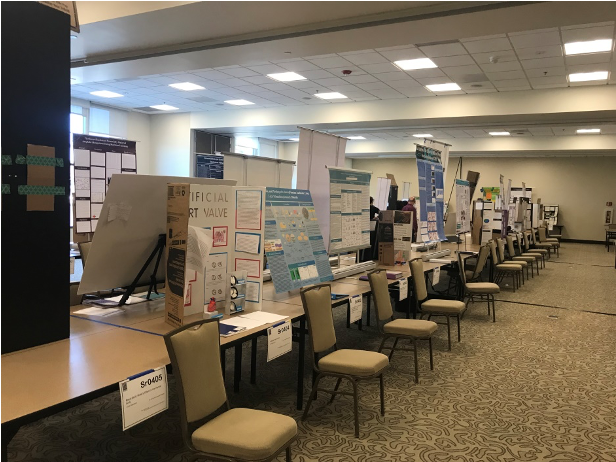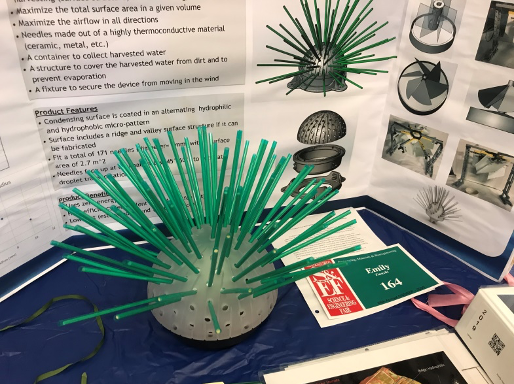Each year volunteers with the California Water Environment Association (CWEA) collaborate with the Water Environment Federation (WEF) in the selection of an individual to receive the Stockholm Junior Water Prize (SJWP). The SJWP is the world’s most prestigious youth award for a water-research science project. All high school students who have reached the age of 15 by August 1 of the competition year, and in grades 9 through 12 with water related science projects are eligible to participate in the regional SJWP competition. The CWEA administers the program for California students. The recipient of the California SJWP represents the state in the National competition which is held in June (the winner of the National Award then goes on to the International competition).

Displays at the Riverside Science and Engineering Fair
Competitors for the SJWP generally begin their science projects in the autumn of the previous year. There are even a few competitors who have been working on their awards for multiple years. Many competitors unveil their projects at a Regional Science Fair. There are 29 Regional Science Fairs taking place in California from late February through early April. Volunteers from the CWEA attended several of the fairs including Golden Gate, Chico, Riverside, San Bernardino-Inyo-Mono and Greater San Diego. This was a tremendous opportunity to view some creative and insightful high school science projects. Several of the participants were given Stockholm Junior Water Prize Certificates for their efforts. Plans for additional Science Fair viewings tours were cut short as many of the fairs were cancelled due to the Covid-19 pandemic. CWEA volunteers did participate in virtual science and engineering fairs conducted in both Los Angeles and Orange Counties. The participating students, teachers and organizers deserve tremendous praise for their work and perseverance during this turbulent year.
As the Regional Fairs drew to a close a record number of 33 students from California submitted their projects for consideration for the California SJWP. The submitted projects went through a two-step screening and review process. The California SJWP process was very fortunate to have three highly qualified judges:
The CWEA extends its gratitude to all three judges included Dr. Rowe who has participated in the judging for several years.
The judges noted the high quality of all of the applicants’ work. Congratulations to all of these students for pushing the envelope of understanding.
The scoring of the judges determined the following three prize recipients:

Display for Biomimmicking Torrey Pine Needles Project at the Greater San Diego Science and Engineering Fair
Ms. Tianshi’s project offered an approach to deal with freshwater scarcity through the harvesting of atmospheric moisture. Torrey Pine tree needles are well known for their atmospheric moisture harvesting abilities. Ms. Tianshi’s study focused on learning their surface structures and properties at a microscopic level and identifying the characteristics that contribute to efficient harvesting. A fog harvesting device was developed that biomimics Torrey Pine needles.
Ms. Tianshi will represent California at the National SJWP competition. This competition was originally scheduled to take place at the Ohio State University in June. The competition has been changed to a virtual process for the safety of the participants.
The wheel turns quickly. In a matter of short months the next group of student will be begin preparing their water-related projects for the 2021 SJWP competition.